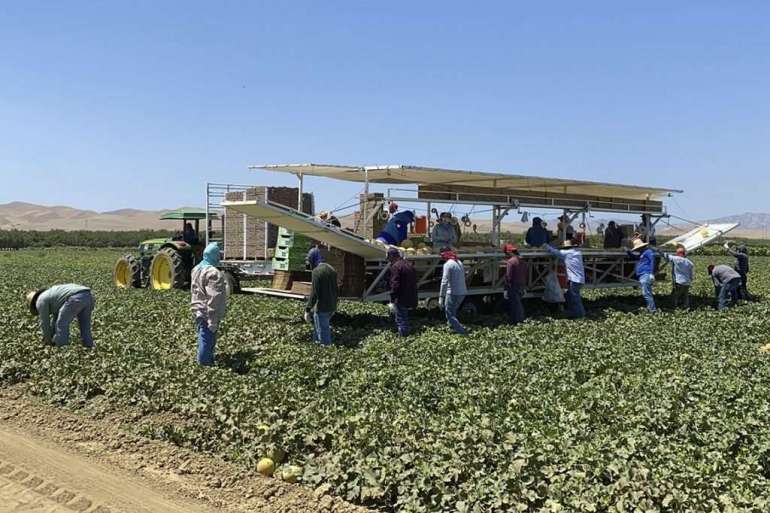Biden administration to write workplace safety rule tackling heat stress

“Rising temperatures pose an imminent threat to millions of American workers exposed to the elements, to kids in schools without air conditioning, to seniors in nursing homes without cooling resources, and particularly to disadvantaged communities. My Administration will not leave Americans to face this threat alone,” President Joe Biden said in a statement.
Context: The actions come as part of the Biden administration’s interagency efforts to address extreme heat, sparked in part by record-breaking heat and wildfires this summer that resulted in hundreds of deaths and illnesses.
It is “virtually certain” that climate change, mostly from burning fossil fuels, has made heatwaves hotter, more intense and last longer, scientists said in a sweeping United Nations Intergovernmental Panel on Climate Change report this summer.
The Bureau of Labor Statistics reported there were 43 work-related deaths due to environmental heat exposure in 2019, and at least 2,410 others suffered serious injuries and illnesses, but the Labor Department says heat illness is “largely preventable, and commonly under-reported.”
States such as California, Washington and Minnesota have heat-related standards in place to protect workers.
“This new process is historic and will unquestionably mean fewer worker deaths while improving productivity,” Rep. Judy Chu (D-Calif.), who has sponsored legislation to create a federal heat standard, said in a statement. “I know because I have seen it work in California, where I introduced the country’s first worker protections from heat stress.”
California, which has a statewide standard, will likely be most informative as the federal government pursues its own version, said Kathy Baughman McLeod, senior vice president of the Adrienne Arsht Rockefeller Resilience Center at the Atlantic Council.
But the Golden State has struggled with enforcing its rules, underscoring the need to significantly boost funding for more inspectors to ensure employers are following the law, Baughman McLeod said. OSHA enforcement personnel, however, has withered over decades.
Details: While the rulemaking process will take many months, the Biden administration also committed to more near-term actions.
The White House said OSHA will expand workplace enforcement on days where the heat index exceeds 80 degrees Fahrenheit by sending more people to investigate complaints. It will also expand education for employers on how to prevent heat illness.
OSHA’s announcement that it would also perform more “unprogrammed inspections” — visits not prompted by a specific event — “will be useful in getting employers to do the right thing,” Juley Fulcher, a worker health and safety advocate with watchdog group Public Citizen, said in an email. She said more details about workplace safety expectations are needed, though, as existing frameworks for holding employers accountable have “serious limits.”
While the effort was “very, very welcome news,” a number of “major enforcement hurdles” exist, Rachel Licker, senior climate scientist with environmental group Union of Concerned Scientists, said in an email. She noted that many outdoor workers that are susceptible to hot temperatures are undocumented immigrants who fear reporting heat illness and other workplace safety issues given potential legal ramifications.
The administration will also develop a “national emphasis program” for heat inspections that prioritizes check-ins at industries such as construction and agriculture, where studies have shown outdoor workers are at high risk. So, too, are people working in poorly ventilated warehouses, factories and meatpacking facilities.
“Throughout the nation, millions of workers face serious hazards from high temperatures both outdoors and indoors,” said Labor Secretary Marty Walsh. “Amid changing climate, the growing frequency and intensity of extreme heat events is increasing the dangers workers face, especially for workers of color who disproportionately work in essential jobs in tough conditions.”
But federal data collection on heat illness is sparse, meaning even the process of gathering information to fully assess threats facing certain industries and workers requires major upgrades, Baughman McLeod said.
“There’s a dearth of data about heat and health,” she said. “There will be a need for us to increase the way we collect the data.”